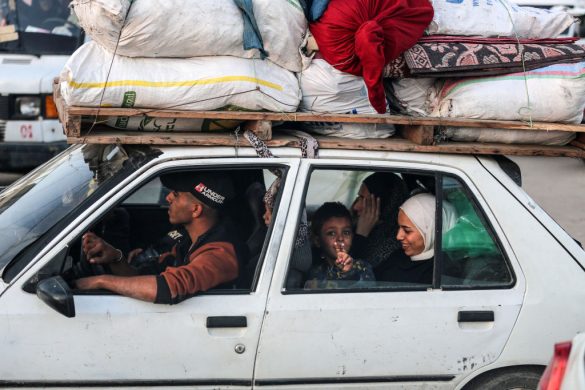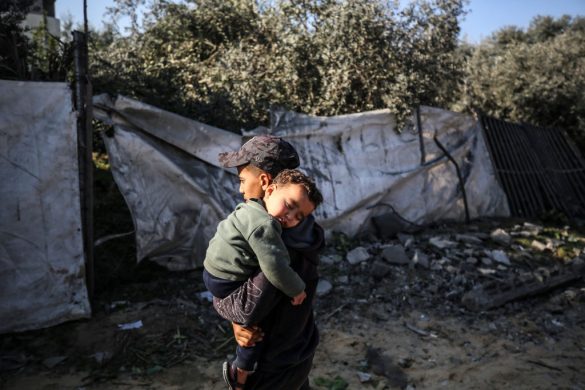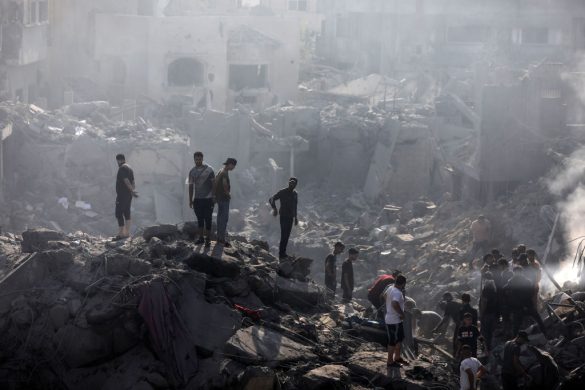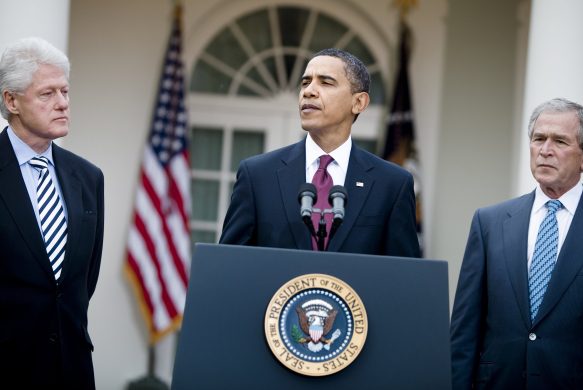Yemen er Mellemøstens fattigste land, kan ikke brødføde sig selv og er ved at løbe tør for vand. Samtidig kæmper oprørere og bevæbnede stammefolk mod regeringen og hinanden. Hvordan kan man levere humanitær hjælp her?
LONDON, 9 June 2014 (IRIN): Humanitarian needs in Yemen are huge, but it is also recognised as one of the most difficult places in the world for aid workers to operate in. What to do?
Yemen is the poorest country in the Middle East. It produces only 20 percent of its own food, is running out of water and has one of the highest rates of chronic child malnutrition in the world. Half the population is estimated to require humanitarian assistance.
At the same time, tribal fighting in the north and a secessionist rebellion in the south have closed off large parts of the territory and driven hundreds of thousands from their homes; and Al Qaeda in the Arabian Peninsula is active, threatening the safety of foreign staff.
Local custom can also be a challenge. Yemeni men routinely carry guns, and hostage-taking is a business, adding to the level of risk that limits humanitarian access.
“In Yemen a Qita – a tribal roadblock, during which the tribesmen hold a car or people hostage in exchange for a variety of demands – is often seen as non-violent and commonplace. Being threatened at gunpoint is viewed as less serious than a slap in the face,” Micheal Neuman wrote in a recent study by Medecins Sans Frontieres (MSF).
The aid community cannot simply walk away, especially since its donors are keen to support Yemen’s political transition to a more democratic form of government; a chaotic process kicked off by the Arab Spring and the eventual overthrow of the corrupt 33-year rule of president Ali Abdullah Saleh.
The Humanitarian Practice Network – based in London’s Overseas Development Institute – has offered some pointers on the way ahead in a special Yemen issue of its journal, ‘Humanitarian Exchange’.
At a meeting in London to launch the publication, Trond Jenson, head of the UN’s Office for the Coordination of Humanitarian Affairs (OCHA) in Yemen, stressed that the political process, despite all the difficulties, was still worth supporting.
“I think the political process and the transition in Yemen has made remarkable progress,” he said. “For the first time, Yemeni youth and women have had a platform to express their vision. But that being said, the key challenge is that unless there are tangible improvements in Yemenis’ daily lives, it is unlikely that they will retain confidence in the political transition process.”
Political risk
At the same time, getting too involved in the transition, begun when Saleh stepped down in 2012, also holds dangers.
“One of the issues that we see now is a lot of development NGOs and multi-mandate NGOs who have been overtly, consciously and strategically involved in the transition process, organising public consultations and working with community-based organisations to feed into the process. So the question becomes, ‘how is this understood by people in Yemen?’,” asked lead author of the HPN report, Steve Zyck.
“And how will it affect aid access, as some of the same agencies who are trying to provide principled, impartial humanitarian assistance have become associated with a political process that many factions find slow, unfair or otherwise objectionable.”
There is a distinct sense of the aid community in Yemen walking on eggshells, trying not to offend any group with the power to exclude them from areas of need. This has meant keeping a distance not just from Yemeni factions, but also from their own donors, a policy defended by Jenson at the London meeting.
“We have a very complex and highly politicised environment,” he said, “and I think it’s very important that we as humanitarians don’t take sides. One of the things that we have done is that there are no donors who are part of the Humanitarian Country Team, the body which sets the policies and strategies for Yemen … to make sure that in an environment where there is a great deal of suspicion against foreign actors, we make it absolutely clear where we are coming from – that all assistance is based on need.”
Britain’s Department of International Development (DFID’s) Humanitarian Advisor in Yemen, Helen McElhinney, told IRIN they had accepted this exclusion after some discussion, taking a broad position that they would do whatever was best in the current context. But she added, “I do rather wonder how many Yemenis in Abiyan know what the UNHCT is, let alone whether DFID does or doesn’t sit on it.”
New thinking
Læs hele artiklen på IRIN News















